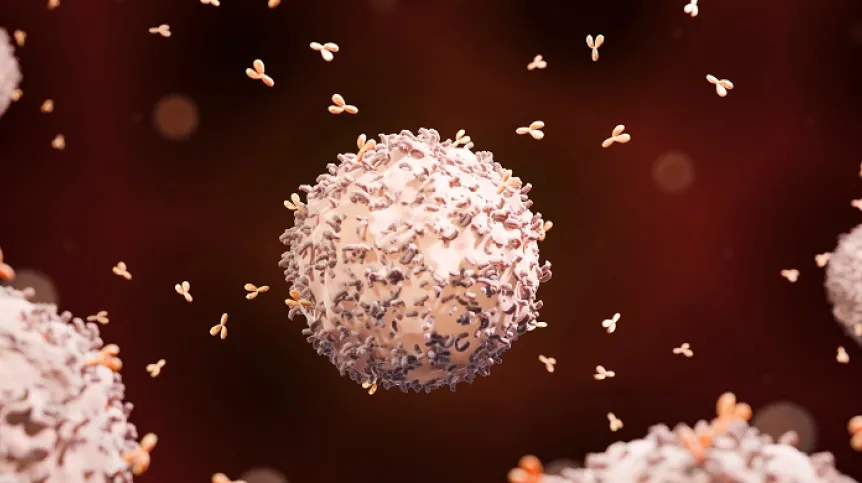
Scientists from the University of Gdańsk are working on an immunotherapy for lung cancer under a project fully funded by the EU’s Horizon Europe programme, with a budget of nearly €1.5 million.
The International Centre for Cancer Vaccine Science (ICCVS) at the university is leading the CANVAS project, which aims to improve the design of treatments for non-small cell lung cancer (NSCLC), the most common form of the disease.
“The CANVAS project, led by the ICCVS, aims to better understand the use of in vitro and animal models in designing effective immunotherapy for non-small cell lung cancer,” the university said in a press release.
“NSCLC accounts for approximately 85% of lung cancer cases worldwide. More than 2 million people develop it each year, including over 300,000 in Europe. On average, 80% of diagnosed patients die within five years,” the release added.
The project’s main goal is to characterise tumour models in vitro and in vivo to select those that best replicate the cancer present in patients’ bodies.
“We have learned how much the tumour changes after being transferred to in vitro culture or to experimental animals. We can also test and evaluate this,” said Professor Natalia Marek-Trzonkowska, project leader and director of ICCVS.
She explained that while many therapies succeed in laboratory and animal studies, similar results are often not achieved in patients. “Many therapies were effective in animal experiments. However, similar results have not been achieved in studies involving patients. That is why we developed this project,” she said.
The CANVAS project has also revealed unique features of tumours that persist in laboratory models. “Models are used by scientists to study the safety and effectiveness of treatment methods. It is extremely important to test therapies in a model that closely resembles the actual target. In our studies, the therapeutic tool is the patient’s T cells, which we expand in the laboratory and activate in the presence of cancer cells,” Marek-Trzonkowska said.
She highlighted the advantage of using natural T cells over CAR-T cells. “We use natural T cells, which means that after eliminating the tumour, most of the therapeutic cells will die, but a certain number will remain in the body as so-called memory cells. These cells will patrol the body and fight the tumour if it recurs,” she said.
The first phase of clinical trials, in which the therapy will be tested in humans, is planned within the next two years.
The University of Gdańsk coordinates the project, with research partners including the University of Rome Tor Vergata in Italy and France’s Alternative Energies and Atomic Energy Commission (CEA).
(PAP)
pm/ jjj/ zan/
tr. RL













